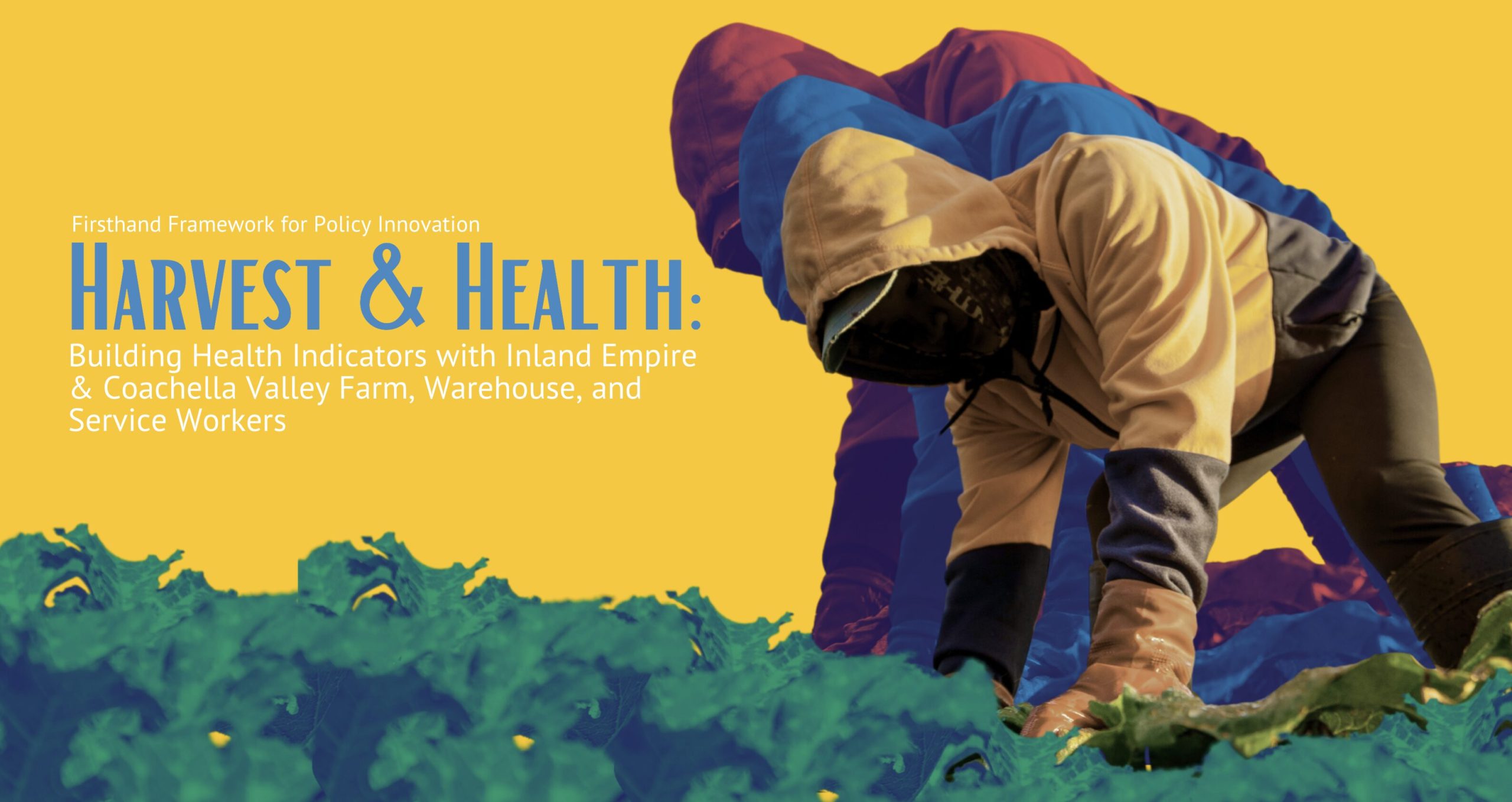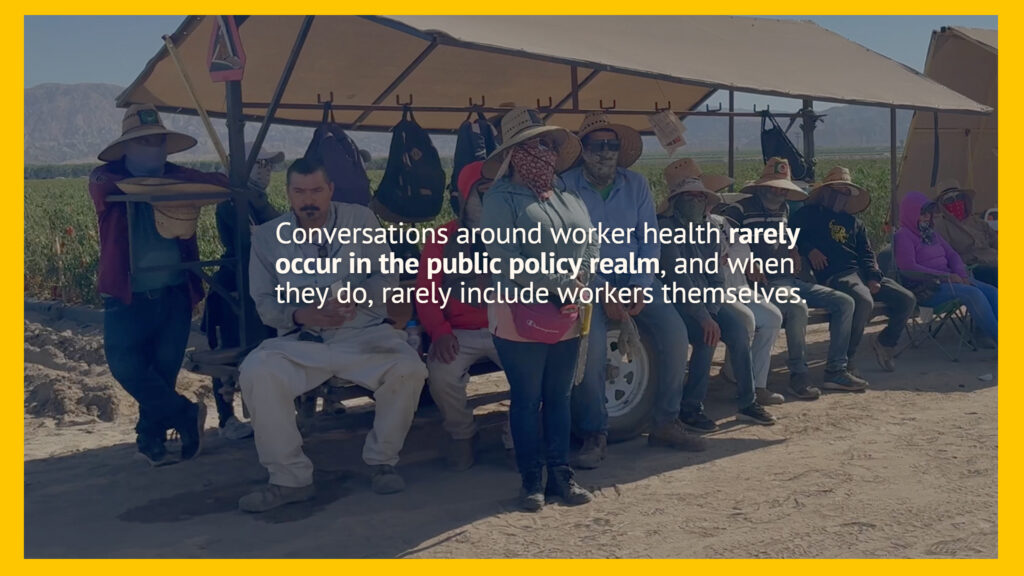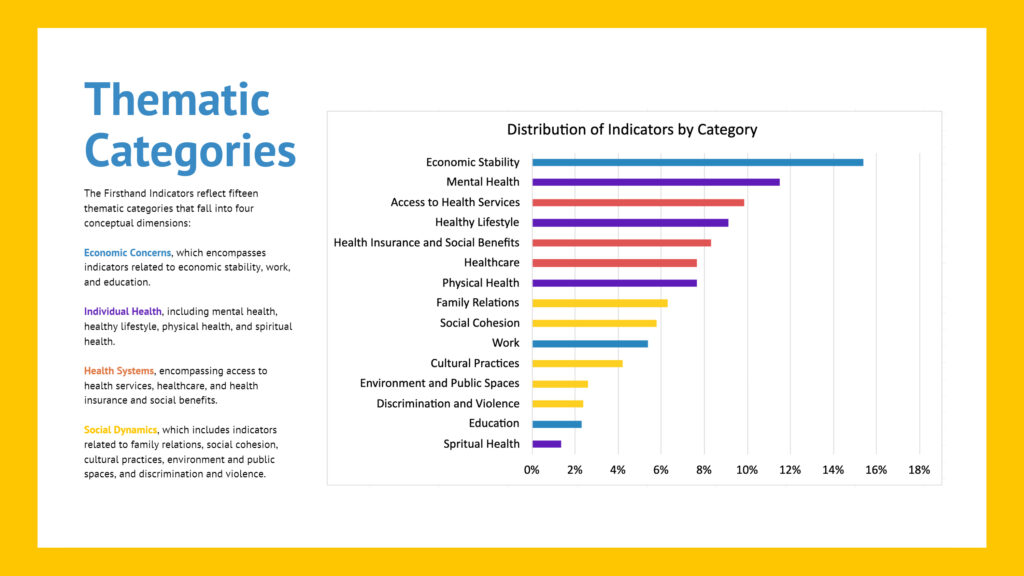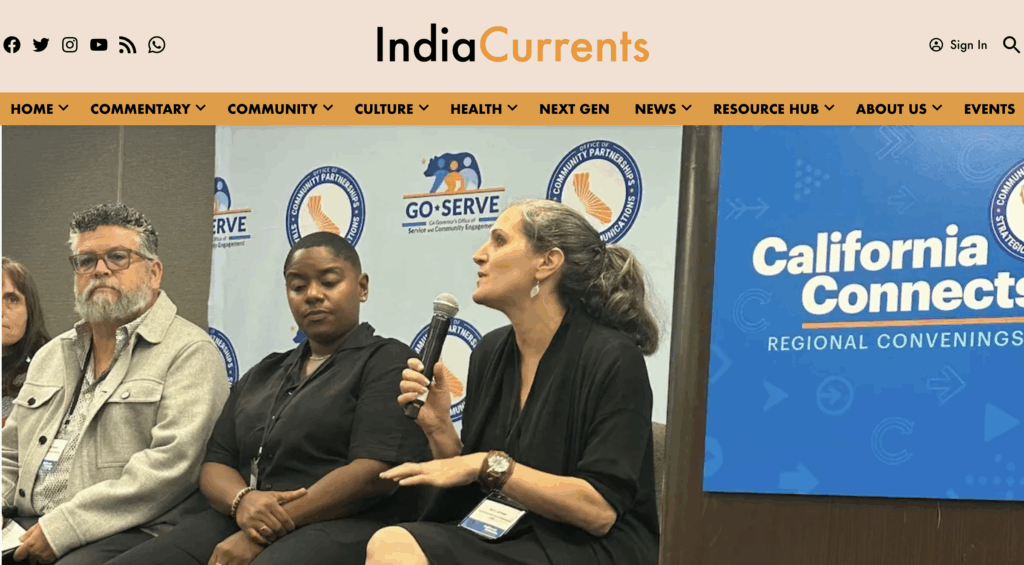
Possibility Lab Releases ‘Health & Harvest’ Report, Mini-Documentary, and Narrative Site on Indicators of Farmworker Health in the Inland Empire
 Watch the “Health & Harvest” Mini-Documentary
Watch the “Health & Harvest” Mini-DocumentaryHealth & Harvest Report Toplines:
- Physical and Mental Health are Intimately Tied to Economic Health: In discussing the signs of health in their daily lives, participants emphasized the central role that financial security plays in their health.
- Fifteen Distinct Thematic Categories of Health Identified: Through 12 focus groups and town halls engaging over 200 farm, warehouse, and service workers, participants developed over 1500 indicators of health. From these, the Lab identified fifteen distinct thematic categories that include: Economic Stability; Mental Health; Access to Health Services; Healthy Lifestyle; Health Insurance and Social Benefits; Healthcare; Physical Health; Family Relations; Social Cohesion; Work; Cultural Practices; Environment and Public Spaces; Discrimination and Violence; Education; and Spiritual Health.
- Ecosystem of Health Revealed: The report highlights the fact that a tightly interwoven network connects these thematic categories that together make up the broader ecosystem of health.
Accompanying the release of the report is a mini-documentary featuring interviews with TODEC staff, community members, and Possibility Lab researchers, offering powerful firsthand perspectives on the process and findings. Additionally, an interactive narrative site brings these findings to life, inviting the public to explore the realities faced by this vital workforce, including examples of the community-sourced indicators and offering the ability to interact with the indicators and themes.

“Farmworkers are the backbone of our nation’s food supply, ensuring that fresh produce reaches our tables every day, yet their experiences and struggles are rarely discussed,” said Naomi Levy, Director of Community Engaged Research at the UC Possibility Lab. “This report sheds light on the vast health disparities that exist within the Latino immigrant working communities in the Inland Empire. It provides a platform for workers to share firsthand how they assess health in their lives. A through line that emerged in nearly every focus group and town hall was the reality that economic health is a major determinant of physical and mental health.”

Firsthand Indicators of Health
In all, 15 distinct conceptual categories were identified as firsthand indicators of health. Of these, economic stability emerged as participants’ top priority, followed by mental health and access to health services, underscoring the importance of these factors in the daily lives of Latino immigrants workers. The results also highlighted the profound barriers faced by this population, such as limited access to medical care and health insurance, economic insecurity, and lack of accessible educational resources. In addition, participants discussed how cultural and linguistic barriers directly impact their physical and mental well-being.
The full report provides valuable information for designing public health and wellness policies that reflect the priorities of immigrant communities, and highlights the need for innovative data-driven approaches and equitable collaborations between communities and policymakers. In particular, the findings underscore that to improve the health of Latino immigrants in the Inland Empire, it is necessary to prioritize economic stability and ensure access to inclusive and culturally competent health services.
“TODEC was born out of struggle, but we remain grounded in hope. As a grassroots organization, we experience our community’s struggles firsthand,” said Luz Gallegos, executive director of TODEC Legal Center. “Partnering with the Possibility Lab has allowed us to amplify the voices of immigrants and farmworkers in our region and document their health challenges in a way that can drive real social change. Our members shared their stories of hardship—how their health is impacted by limited access to healthcare, safety net programs, and financial security. We firmly believe that those closest to the pain, should be closest to the power, and we hope that those with power use these findings to help communities like ours thrive.”
This is the second report released this year by the Possibility Lab using the Firsthand Framework. In January, the Lab released a report examining indicators of safety in Oakland, California.


